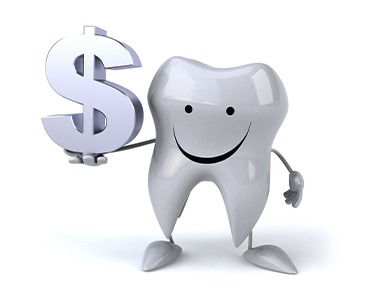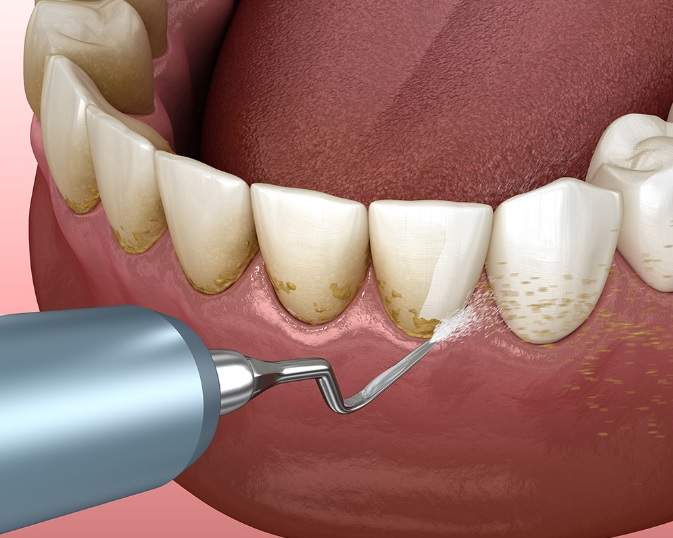In today’s world of do-it-yourself solutions and home remedies, it’s easy to wonder whether professional services are truly worth the investment. When it comes to dental care, this question becomes even more pertinent. Is professional teeth cleaning worth the cost, or can you achieve the same results with diligent at-home care? In this post, we’ll look into the intricacies of professional teeth cleaning, exploring what it entails, its benefits, and whether the teeth cleaning cost justifies the outcome. By the end, you’ll have a clearer understanding of whether investing in professional dental cleanings is a wise decision for your health and wallet.
Understanding Professional Teeth Cleaning
Professional teeth cleaning, also known as prophylaxis, is a crucial aspect of maintaining oral health. It involves a series of procedures performed by a dental hygienist or dentist to thoroughly clean your teeth and gums. Here’s a detailed look at what this process entails:
What It Involves
- Initial Examination:
Before the cleaning begins, the dentist will conduct a preliminary examination of your mouth. They use a small mirror to check around your teeth and gums for any signs of inflammation, decay, or other potential concerns.
- Scaling:
This is the process of removing plaque and tartar (hardened plaque) from the surfaces of your teeth, especially around the gumline and between teeth. Dentists use specialized tools, either manual scalers or ultrasonic instruments, to effectively clean these areas. Tartar cannot be removed by brushing and flossing alone, making this step essential.
- Polishing:
After scaling, your teeth are polished to remove any remaining plaque and minor stains on the tooth surfaces. A high-powered electric brush and gritty toothpaste are typically used for this step. Polishing not only makes your teeth look cleaner but also makes it harder for plaque to accumulate on the smooth surfaces.
- Flossing:
Professional flossing ensures that any debris or plaque dislodged during the cleaning is removed. This step also helps to clean between teeth and along the gumline, areas that are often missed during regular home care.
- Fluoride Treatment (Optional):
Some dental cleanings include a fluoride treatment. Fluoride is a mineral that helps to strengthen tooth enamel and protect against cavities. The treatment involves applying a gel or varnish to your teeth, which is left on for a few minutes to allow maximum absorption.
Teeth Cleaning Cost – How much

When considering professional teeth cleaning, understanding the costs involved is crucial. While prices can vary widely based on several factors, here is a detailed breakdown of what you might expect in teeth cleaning cost:
Breakdown of Costs
- Initial Examination:
Cost: Rs.200 – Rs.500
Details: This fee covers the dentist’s or hygienist’s time to conduct a preliminary oral examination. They look for signs of decay, gum disease, and other dental issues that might need attention.
- Scaling and Polishing:
Cost: Rs.900 – Rs.2500
Details: This is the main component of the teeth cleaning process. The cost depends on the extent of plaque and tartar buildup and whether additional time or specialized tools are required.
- Fluoride Treatment:
Cost: Rs.1500 – Rs.3000
Details: Not always included, this optional treatment helps strengthen tooth enamel and prevent cavities. It’s especially recommended for children and individuals prone to tooth decay.
- X-Rays:
Cost: Rs.500 – Rs.900
Details: Depending on your oral health, the dentist may recommend X-rays to check for hidden issues. The cost varies based on the type and number of X-rays needed.
Benefits from a Dentist’s Perspective
Professional teeth cleaning is more than just a routine procedure; it plays a critical role in maintaining overall oral health. From a dentist’s perspective, the benefits of professional teeth cleaning extend far beyond what can be achieved with at-home care. Here are some key insights:
Expert Opinion
Deep Cleaning Capability:
Professional Expertise: Dentists and dental hygienists are trained to remove plaque and tartar that accumulate in hard-to-reach areas. At-home brushing and flossing, while crucial, cannot completely remove these deposits, especially below the gumline.
Customized Care:
Personalized Assessment: During a professional cleaning, the dental professional can tailor the cleaning process based on individual needs. They can identify specific areas that require more attention, provide personalized advice, and use appropriate techniques and tools to address unique dental issues.
Preventive Care
Prevention of Gum Disease:
Early Intervention: Regular professional cleanings help prevent gingivitis and periodontal disease by removing the plaque and tartar that cause inflammation and infection. Early detection and treatment of gum disease can prevent more severe and costly treatments down the line.
Cavity Prevention:
Plaque and Tartar Removal: Removing plaque, which is a sticky film of bacteria, and tartar, which is hardened plaque, helps prevent cavities. Plaque can erode tooth enamel and lead to cavities, while tartar provides a breeding ground for bacteria.
Detection of Oral Health Issues:
Comprehensive Examination: During a professional cleaning, the dentist or hygienist performs a thorough examination of your mouth, which helps in the early detection of potential problems such as cavities, broken fillings, and oral cancer. Early detection is key to prompt and effective treatment.
Health Benefits
Overall Health Connection:
Systemic Health: Oral health is closely linked to overall health. Poor oral hygiene can lead to conditions such as heart disease, diabetes, and respiratory issues. Regular professional cleanings reduce the risk of bacteria from the mouth entering the bloodstream and causing systemic health problems.
Reduction of Bad Breath:
Halitosis Management: Professional cleanings help reduce bad breath (halitosis) by removing bacteria and food particles that cause odor. This not only improves oral health but also boosts confidence and social interactions.
Enhanced Aesthetic Appeal:
Whiter Smile: Professional cleanings can remove surface stains caused by coffee, tea, smoking, and other factors, resulting in a brighter, whiter smile. This aesthetic improvement contributes to a better self-image and increased confidence.
Additional Insights
Educational Component:
Patient Education: Dentists and hygienists provide valuable education on proper brushing and flossing techniques, dietary advice, and other tips to maintain oral health between visits. This personalized guidance helps patients take better care of their teeth and gums at home.
Long-Term Savings:
Cost-Effective: Investing in regular professional cleanings can save money in the long run by preventing more serious and costly dental issues. For example, treating a cavity or gum disease early on is far less expensive than root canal therapy or periodontal surgery.
Peace of Mind:
Health Assurance: Regular visits to the dentist provide peace of mind that your oral health is being monitored and maintained. This reduces anxiety about potential dental problems and ensures that any issues are addressed promptly.
From a dentist’s perspective, the benefits of professional teeth cleaning are clear. This preventive care not only maintains and improves oral health but also contributes to overall well-being, confidence, and long-term financial savings. Regular cleanings every six months can help prevent the need for more costly and extensive dental treatments in the future.
Common Misconceptions
When it comes to professional teeth cleaning, there are several misconceptions that often prevent people from seeking the care they need. Addressing these misconceptions can help clarify the importance and value of professional dental cleanings.
Misconception 1: Teeth Cleaning Cost vs. Value
“Professional cleanings are too expensive.”
Reality: While professional cleanings do have a cost, they are a worthwhile investment in long-term oral health. Regular cleanings help prevent more severe and expensive dental issues such as cavities, gum disease, and tooth loss. The cost of preventive care is often much lower than the cost of treating advanced dental problems.
“I can get the same results with over-the-counter products.”
Reality: Over-the-counter products like toothpaste, mouthwash, and whitening kits are beneficial for daily oral hygiene but cannot match the thoroughness of a professional cleaning. Professional tools and techniques can remove plaque and tartar that home care products cannot, especially below the gumline.
Misconception 2: Effectiveness of At-Home Cleaning
“Brushing and flossing are enough to keep my teeth clean.”
Reality: While daily brushing and flossing are crucial for maintaining oral health, they are not enough to remove all plaque and tartar buildup. Professional cleanings reach areas that regular brushing and flossing cannot, preventing the buildup of harmful bacteria.
“I don’t need a cleaning if I don’t have visible dental problems.”
Reality: Many dental issues, such as gum disease and cavities, can develop without noticeable symptoms in the early stages. Regular professional cleanings help detect and address these issues before they become more serious and symptomatic.
Misconception 3: Pain and Discomfort
“Professional teeth cleanings are painful.”
Reality: Modern dental practices use advanced techniques and tools to minimize discomfort during cleanings. Most people find the procedure to be painless or only mildly uncomfortable. For those with dental anxiety or sensitivity, dentists can offer various options to ensure a comfortable experience, such as numbing gels or sedation.
“Cleanings will make my teeth sensitive.”
Reality: Any sensitivity experienced after a professional cleaning is usually temporary and mild. The benefits of removing plaque and tartar far outweigh the brief discomfort. If sensitivity persists, it is important to discuss this with your dentist.
Misconception 4: Frequency of Visits
“I only need to see the dentist if I have a problem.”
Reality: Regular dental visits, typically every six months, are essential for maintaining oral health. These visits allow for early detection and prevention of dental problems, which can save time, money, and discomfort in the long run.
“Professional cleanings are unnecessary if I have good oral hygiene.”
Reality: Even with excellent oral hygiene, plaque and tartar can still build up over time. Professional cleanings complement good home care by thoroughly cleaning areas that may be missed during daily brushing and flossing.
Conclusion
In the debate over whether professional teeth cleaning cost is worth, the evidence leans strongly in favor of making this investment in your oral health. From the perspective of experienced dental professionals, regular cleanings provide critical benefits that go beyond what at-home care can achieve. They help prevent gum disease, cavities, and other serious dental issues that can lead to more significant health problems and higher costs down the line.
Professional cleanings also offer the peace of mind that comes with knowing your oral health is being monitored and maintained by experts. The comprehensive care you receive during these visits includes not only thorough cleaning but also early detection of potential issues, personalized advice, and a boost to your overall well-being.
While the professional teeth cleaning cost may seem daunting, the long-term savings and health benefits far outweigh the initial expense. Regular dental visits ensure that minor issues are addressed before they escalate, saving you from more painful and expensive treatments in the future. Moreover, the enhancement of your smile’s appearance and the confidence it brings are invaluable.

